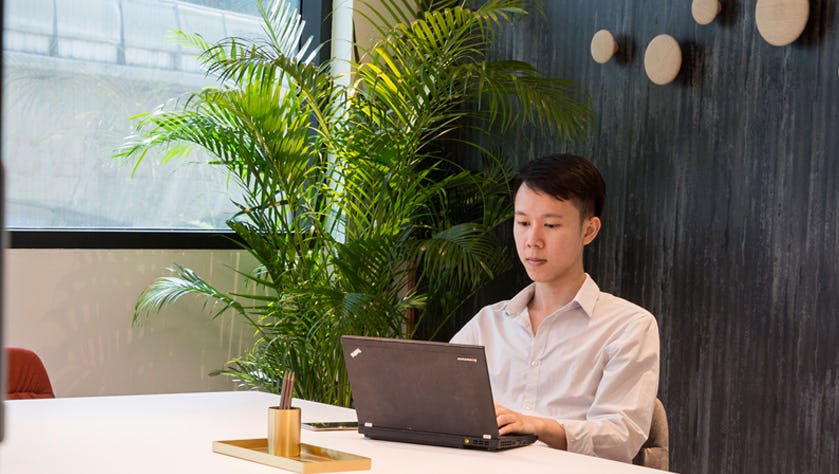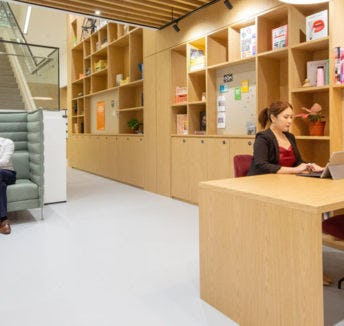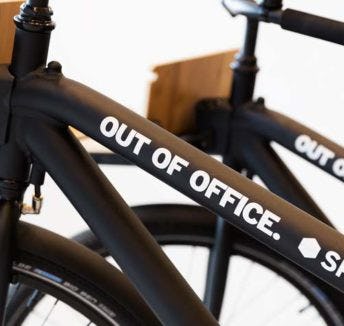
The shift towards flexible working practices was a fast-developing trend before COVID-19. Here, the experts explain why they think remote working is here to stay
In March 2020, many of the world’s knowledge workers had something in common – they were almost all working remotely. Between the World Health Organisation officially declaring COVID-19 a pandemic on 11 March and 27 March, an estimated 16 million people in the US alone had packed up their office desks and started working from home.
“These new numbers represent a seismic shift in work culture,” says Rani Molla X in Vox. Prior to the pandemic, she explains, the number of people regularly working from home remained in the single digits, with only about 4 percent of the US workforce working from home at least half the time.
After the pandemic, how likely is it that these workers who’ve had a taste of remote working will want to return to the office under the same conditions as before? Not likely, say the experts. Below, they explain why they think remote and flexible working will be here to stay.
It’s an experiment with promising results
Heinan Landa, the CEO of Optimal Networks and the author of The Modern Law Firm: How to Thrive in an Era of Rapid Technological Change, calls the outbreak “the world’s large work-from-home experiment” in Fast Company. “For companies and businesses who are just now navigating the challenges of remote work, they will perhaps bolster their flexibility options, improve their technology and cybersecurity, and take a second look at their current operational processes,” Landa says. “This is, in fact, a wake-up call for companies who have never had to deal with something like this before. For some, perhaps the outbreak will prove that remote work is a very real option and one essential to a business continuity plan.”
You can’t put the genie back in the bottle
“Once [employees have experienced remote working], they’re going to want to continue,” says Kate Lister, president of consulting firm Global Workplace Analytics, quoted in Recode. She predicts that 30% of people will work from home multiple days per week within a couple of years. Lister added that there has been pent-up demand by employees for greater work-life flexibility, and that the coronavirus has made their employers see the light, especially as they themselves have had to work from home.
It will make companies reassess their culture
“This is not how I envisioned the distributed work revolution taking hold,” says Matt Mullenweg, chief executive of WordPress and Tumblr owner Automattic, quoted in The Guardian. Mullenweg’s company is already distributed, and he predicts the changes “might also offer an opportunity for many companies to finally build a culture that allows long-overdue work flexibility. “Millions of people will get the chance to experience days without long commutes, or the harsh inflexibility of not being able to stay close to home when a family member is sick… This might be a chance for a great reset in terms of how we work,” he says.
Organisations will see the value of remote work
“It only makes sense that employers are going to think long and hard about expanding flexible work arrangements and remote work options once things return to some semblance of normalcy,” says Mark McGraw, analyst at research firm Institute for Corporate Productivity (i4cp). “I think companies are going to see that some, maybe many, of the jobs they’ve always thought had to be done onsite could be done just about anywhere and could be done just as well.” New data from i4cp found that more than half of 27 employers surveyed plan to expand or increase flexible work arrangements on a more permanent basis after the coronavirus outbreak is contained. Just 15% said they did not plan to revisit remote work options in the wake of COVID-19.
It could make the workplace more diverse
Hayden Brown, CEO and President of Upwork says that while the shift was already happening before the outbreak, she is now starting to see more businesses move toward finding and hiring talent based on proven quality, experience, and skill. She believes “COVID-19 has only accelerated this reduced concern for the physical constraints of location.”
Full-time working from home is no long-term solution. At Spaces, we offer inspiring, fully equipped workspaces with everything you need – without having to worry about the other stuff. Speak to us today to find out more.
Share this article
 Read now How to build company culture and a sense of community when your team works remotely?
Read now How to build company culture and a sense of community when your team works remotely?
 Read now Cheat sheet: five things to know about remote working and the environment
Read now Cheat sheet: five things to know about remote working and the environment